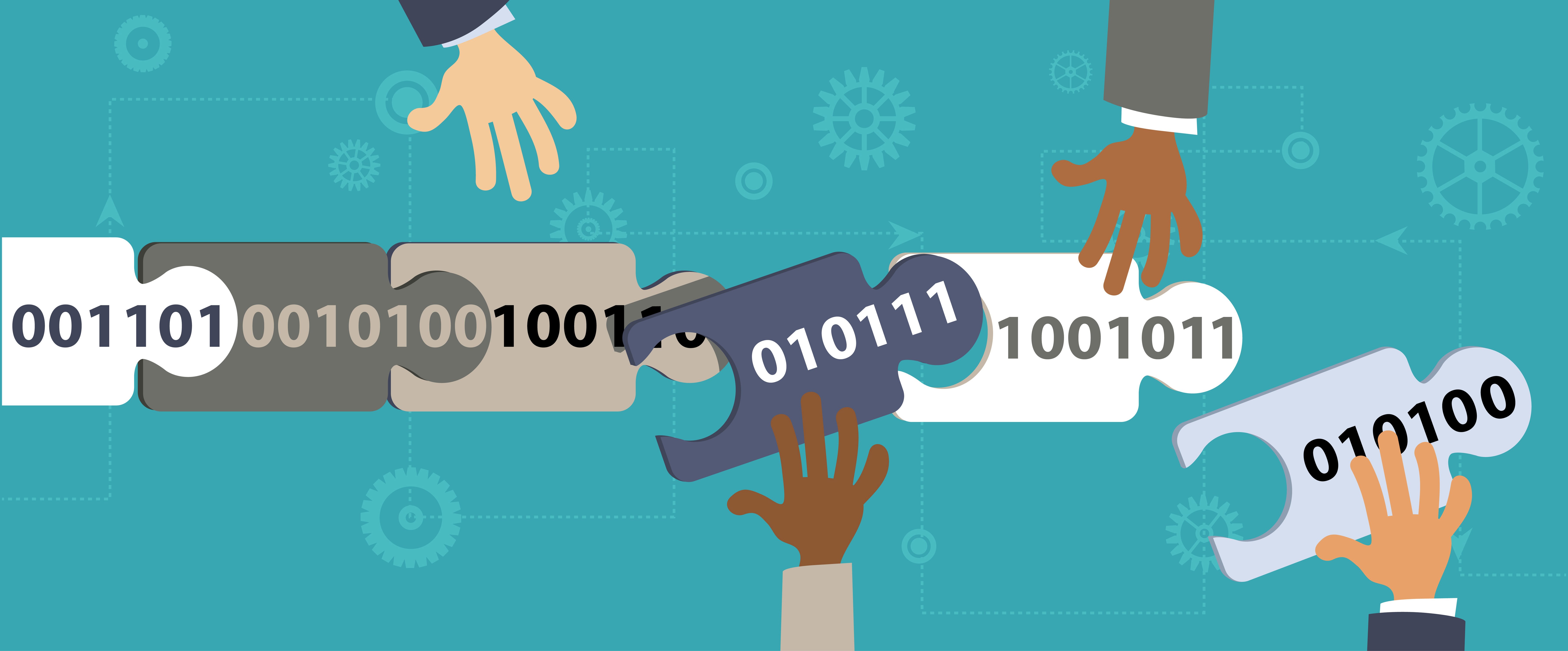While digital currencies, particularly bitcoin, are the most common and well-known application of blockchain technology, they are far from being the sole or even the most important use. Blockchain is one of the most important technological advancements of the digital age, and its full potential has barely been tapped. Among the most exciting potential uses for this technology are cybersecurity and compliance applications.

What Is Blockchain?
At its simplest, a blockchain is a digitized, distributed public ledger. While it was originally developed to keep track of bitcoin transactions, it can be used for any sort of record-keeping, from health records to the requirements of a business contract. Each record (called a block) contains a cryptographic hash of the previous block, a timestamp, and transaction data, and the blocks are linked using cryptography.
Typically, a blockchain is managed by a peer-to-peer network that collectively adheres to a protocol for inter-node communication and the validation of new blocks. Once recorded, blockchain data is immutable. Blocks cannot be deleted, and if data is altered on a single block, those alterations must be verified with the rest of the chain. Hacking one entry in a blockchain ledger requires hacking every single transaction that precedes or follows it – and every change made to a block is appended with a digital signature or timestamp showing who did it and when. Finally, because the blockchain is distributed, it is not and cannot be controlled by a single entity, and there is no central point of access or failure.
It’s not difficult to envision the potential benefits of these features for cybersecurity and compliance. It would be extremely difficult to breach the data on a blockchain ledger or launch a DDoS attack against a blockchain DNS system. Because the records are immutable, data integrity is assured.
Practical applications of blockchain technology to cybersecurity and compliance include:
Identity Theft Prevention
Even in our digital age, reliable identity verification remains a problem. We establish we are who we say we are using one or multiple hard-copy documents or electronic records, from driver licenses to Social Security Numbers. All these records are highly prone to theft and forgery; even children are being victimized by identity theft. Using blockchain, we will be able to combine our current forms of identification into a “blockchain ID.” Instead of brandishing documents to verify their identities, people will produce a secure, immutable public key generated by a blockchain ledger. This will allow consumers to verify their identities without having to share their personal data, simplify identity authentication and make it more secure, and prevent identity theft.
Securing Healthcare Records
Just as it can secure our identities, blockchain can be used to secure our personal healthcare records and make sharing them easier and safer. Electronic health records (EHR) systems are major targets for cyber criminals, and there is still no secure, efficient way for healthcare providers to share patient data; patient records are scattered in different systems run by different facilities and providers.
EHR systems built on blockchain technology will benefit both providers and patients. Patients will have a comprehensive and secure record of their healthcare that is continually updated and can be easily and securely shared with providers. Providers will be able to access patient data more quickly, reduce medical errors caused by inaccurate or missing data, and have an easier time complying with HIPAA and other data privacy regulations.
Smart Contracts
Organizations worldwide are losing millions to business email compromise (BEC) scams. The U.S. Securities & Exchange Commission recently investigated a series of BEC attacks where hackers impersonated either a company executive or an outside vendor and convinced unwitting employees to wire money or pay invoices to accounts that the hackers controlled. In some cases, the victims had no idea they’d been tricked until the real vendor contacted them about the invoices being past due. Each organization lost at least $1 million, and two lost more than $30 million.
Smart contracts, also known as self-executing contracts, blockchain contracts, or digital contracts, will help prevent these types of BEC scams. Smart contracts are embedded with an if-this-then-that (IFTTT) code that automatically executes the contract’s terms once its conditions are met; for example, once a vendor completes work or delivers goods to a buyer, the vendor is automatically paid, and changing the payment account data would require validation from the entire chain.
Secure International Payments
Many organizations work with vendors located overseas. Currently, transferring money overseas is slow, cumbersome, expensive, and prone to error and criminal activity. A blockchain-powered payments system produces a secure, immutable ledger showing where the funds are and whose hands they are passing through, every step of the way.
Compliance Audit Trails
The immutability of blockchain records equates to a verified chain-of-trust and proof-of-process for compliance. Organizations can prove that they have secured their customers’ data and that they have followed specific business processes. Auditors and regulators can be assured of the integrity of an audit trail produced by a blockchain-powered system.
For all its promise, blockchain is not a panacea, and many of its potential applications are still theoretical or have kinks that need to be ironed out. However, it’s safe to say that the future of cybersecurity and compliance will be built on blockchain.
The cybersecurity experts at Continuum GRC have deep knowledge of the cybersecurity field, are continually monitoring the latest information security threats, and are committed to protecting your organization from security breaches. Continuum GRC offers full-service and in-house risk assessment and risk management subscriptions, and we help companies all around the world sustain proactive cybersecurity programs.
Continuum GRC is proactive cybersecurity®. Call 1-888-896-6207 to discuss your organization’s cybersecurity needs and find out how we can help your organization protect its systems and ensure compliance.




